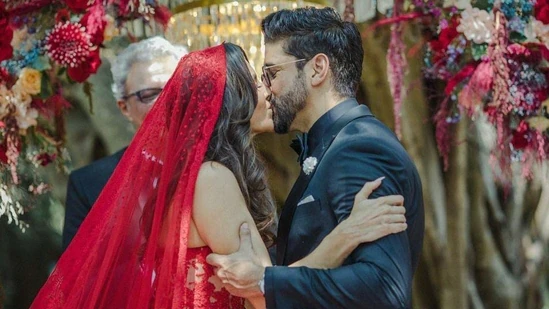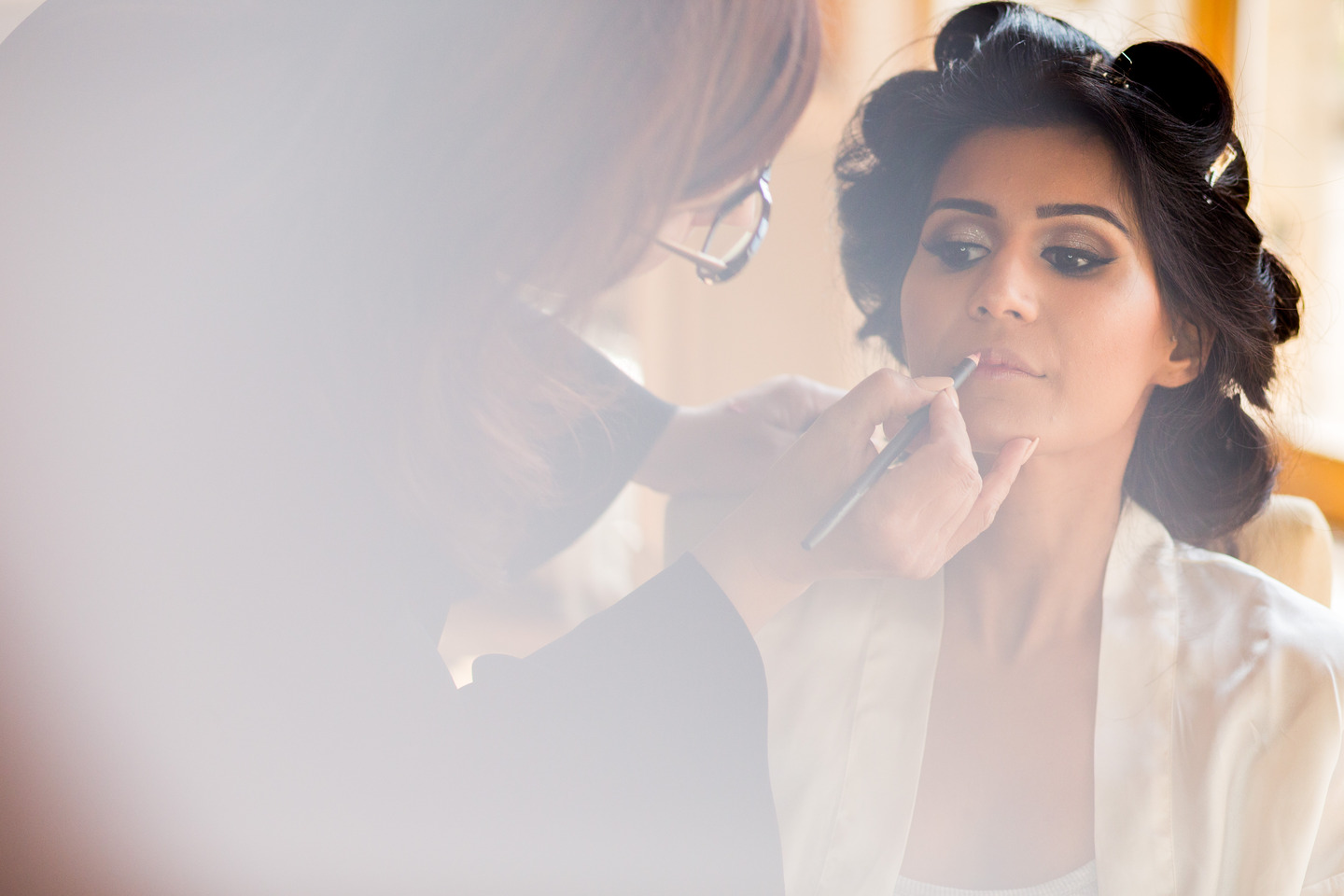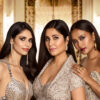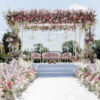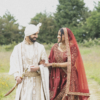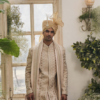For generations, weddings across South Asia have been drenched in the divine. They’ve been a heady cocktail of prayers and fire rituals, veils and vows, offered up in temples, mosques, gurdwaras, and churches. These ceremonies have long been the theatre of identity, a place where families merged not just bloodlines but also belief systems. Here, gods were invited before guests, and customs became contracts. The idea of a wedding without religion, without scripture, without ritual, without a priest, a pandit, or an imam once felt nearly impossible in a region so deeply steeped in the sacred. But quietly, like monsoon creeping into the dry earth, things are beginning to shift.
In recent years, a new kind of South Asian wedding is emerging, rooted in love, not lineage; built on partnership, not pandering; and most strikingly, free of religious frameworks. These secular weddings, simple yet soul-stirring, are becoming a movement of sorts. They’re not shouting from the rooftops, but they’re refusing to whisper. They’re showing us that in a region often defined by communal identity, choosing love without religious labels is not just radical; it’s deeply, achingly human.
Take Sonakshi Sinha and Zaheer Iqbal, a couple who chose to marry through a civil ceremony, devoid of the usual fanfare and faith-based rituals. Their union was not celebrated with temple bells or Quranic verses. Instead, it was a soft, sincere gathering in their home, surrounded by loved ones. A legal bond, a promise made not before gods, but each other. This decision, while intensely personal, carried a quiet power. It reminded us that faith in each other can be more sacred than any religious rite. Across the Indian Ocean, in Sri Lanka, the notion of a secular wedding is also gently taking root. While many still cleave to age-old Buddhist or Hindu customs, urban couples in Colombo and beyond are crafting ceremonies that blend the aesthetic beauty of their heritage with a more personal, humanist approach. These are ceremonies where love letters replace mantras, and vows are written in first person, not passed down by tradition.
Farhan Akhtar and Shibani Dandekar, another well-known South Asian couple, made headlines with a wedding that eschewed conventional frameworks entirely. Their 2022 ceremony wasn’t held in a religious space, and no rituals were performed to satisfy any inherited faith. Instead, they held a dreamy celebration at Javed Akhtar and Shabana Azmi’s Khandala home, where personal vows were exchanged under an open sky. It was reflective of a new generation; one that seeks emotional truth over cultural performance. Their wedding wasn’t about rejecting heritage, but about reclaiming intimacy.
In Pakistan, where religious identity is often inseparable from social rituals, the decision to opt for a secular wedding is an even braver act. Publicly, such unions are rare. But among artists, urban professionals, and quietly defiant couples in cities like Lahore and Karachi, conversations around humanist or civil ceremonies are gaining traction. These are weddings where couples choose to forego the nikah or walima not out of rebellion but in pursuit of a union that feels more authentic, more equal, more them. Ali Sethi, the beloved Pakistani singer and poet, has been outspoken about imagining futures that are more fluid and free; whether in terms of identity, tradition, or love. Though not publicly married, his articulation of queer, secular love in South Asia has paved the way for a new kind of visibility, one that makes room for unions that defy norms not only of gender or religion, but of the ceremony itself.
Sagarika Ghatge and Zaheer Khan, a Hindu-Muslim couple based in India but celebrated across the cricket-loving region, chose to skip traditional interfaith rituals altogether. Their civil ceremony was a nod to simplicity and legality rather than custom. Theirs wasn’t just a love story, it was a statement. That marriage could be meaningful without being religious. That the union of two people didn’t need to be translated through the lens of faith. And in South Asia, where interfaith marriages often attract scrutiny or social resistance, this choice feels quietly revolutionary. What unites all these stories scattered across different geographies, languages, and histories is the insistence on personal choice. In a region where weddings often serve as a performance of community, caste, and culture, choosing a secular wedding is choosing selfhood. It’s two people saying: we love each other, and that is reason enough.
And perhaps that is why these weddings feel more intimate, more textured. In the absence of holy chants and age-old rites, something surprisingly sacred emerges: authenticity. The tears are unscripted. The vows are unvarnished. There are no Sanskrit verses or Arabic blessings to lean on, only trembling hands and promises spoken from the gut. There’s something profoundly moving about that kind of courage. It’s also worth acknowledging that secular weddings don’t reject culture; they refine it. Many couples still incorporate regional textiles, local food, heirloom jewellery, or traditional music. The aesthetics remain, it’s the authority that shifts. No one is prescribing how it should be done and the wedding becomes a canvas, not a checklist.
As South Asia navigates its complexities, religious pluralism, generational change, rising individualism, these weddings feel like gentle beacons. They don’t deny faith, but they decentralise it. They remind us that while temples, mosques, and churches may be sacred, so too is a shared apartment filled with books and laughter. In a region so often defined by the collective, a secular wedding is one of the rare acts that centers the couple entirely. It is a tender, unapologetic agency. It’s saying, We choose each other: without conversion, without compromise, without condition.
And that, perhaps, is the most sacred vow of all.



